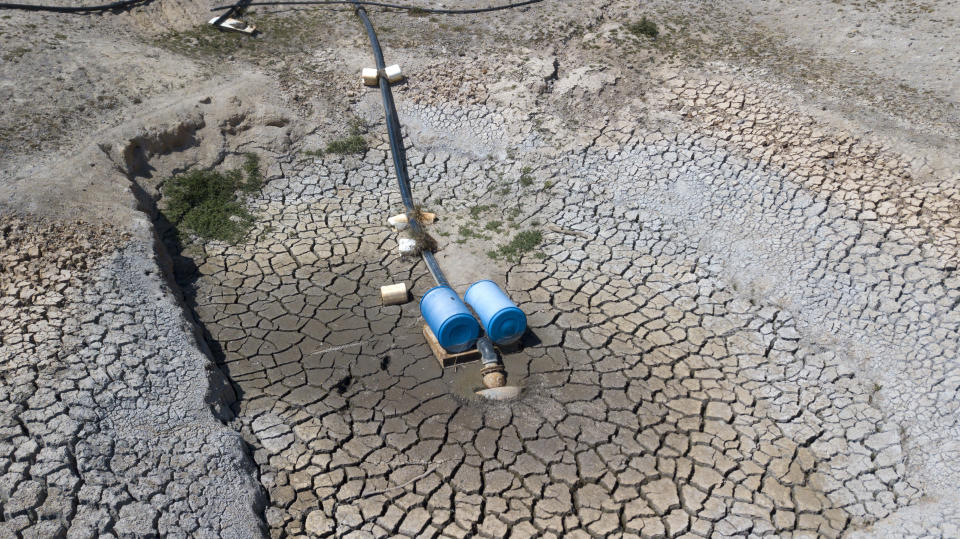'Pretty simple question': Deputy PM cops tense grilling from Today host
Deputy Prime Minister Michael McCormack has copped a tense grilling over the government’s $1 billion package offering relief to drought-stricken farmers.
The government will unveil new drought support measures on Thursday, including nearly $1 billion in funding and loans from the Regional Investment Corporation. It will be available for businesses who rely on agriculture with 19 employees or less.
Any small business deemed to be dependent on agriculture will be eligible for concessional loans of up to $500,000, payable over 10 years.

To ease the financial burden, the government said there will be no interest payable over the first two years of the loan, while businesses will then pay only interest on the loan between years three to five. Principal and interest payments will then be due from year six.
Mr McCormack spoke about the plan on Nine’s The Today Show on Thursday morning.
Dancing in the rain: Drought-stricken residents rejoice as heavens open up
Horses struggling through drought in race against time to keep them alive
'Tipping point': Farmers crippled by drought dealt 'last nail in the coffin'
Presenter Deborah Knight asked Mr McCormack if the government would look to extend interest free loans beyond two years “for those who need it”.
“We will see about that. We have been monitoring the drought very closely,” Mr McCormack said.
“We have got people who live in these drought-affected communities. I live in a drought-affected community. I hear it every day.”

But Knight pressed and asked if the government could commit beyond the two years.
“But you’re saying you recognise the help that’s needed - can’t you commit to that?” she said.
“To say that if they need it beyond the two years, ‘yes, we commit, it will be available’.”
Mr McCormack explained the government has approached the drought by offering a “stepped payment and stepped packages all the way through”.
Knight said, “it’s a pretty simple question” with a “yes or no” answer.

The Nationals leader said the government is “making it available”.
“Beyond two years?” Knight said.
Mr McCormack said the government will see if it’s required beyond two years, and if it is it will provide assistance.
The Today Show host told Mr McCormack the plans didn’t include “exit packages”.
Agriculture is not broken, deputy prime minister says
Last month, after a meeting with the Prime Minister Scott Morrison, the National Farmers Federation outlined its vision for how to assist farmers.
One of the measures the NFF proposed was “assistance for farming families looking to exit farming, after an assessment of their long-term viability.''
Mr McCormack confirmed an exit strategy wasn’t part of the plan “but there are things we will continue to look at”.

“We want our farmers to stay on the land. Importantly, we want there to be a future in agriculture,” he said.
“Agriculture is not broken, by no means whatsoever. Agriculture still has a huge part to play.”
The extent of Australia’s drought
According to the Bureau of Meteorology, most of the NSW, Queensland and South Australian parts of the Murray–Darling Basin have had rainfall deficiencies since the start of 2017.

The lack of rainfall has been “the most extreme” in the Murray-Darling Basin “especially in the northern half of NSW and adjacent southern Queensland, where areas of lowest on record rainfall extend from the Great Dividing Range west as far as Dubbo and Walgett.”
Gippsland in Victoria’s east and the east coast of Tasmania are also suffering from longer term rain deficiencies.
“Rainfall deficits in 2019 in this region have mostly been less extreme than in 2017 and 2018, but have still been sufficient to reinforce deficiencies at multi-year timescales,” BOM said.

With Reuters
Do you have a story tip? Email: newsroomau@yahoonews.com.
You can also follow us on Facebook and Twitter, download the Yahoo News app from the App Store or Google Play and stay up to date with the latest news with Yahoo’s daily newsletter. Sign up here.


